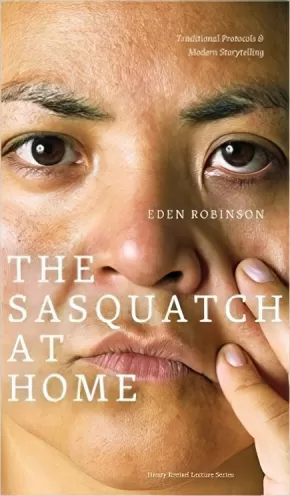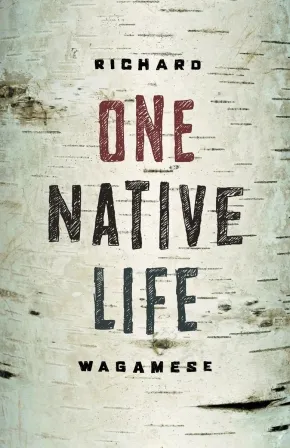Memoirs
Synopsis:
In March 2010 the Canadian Literature Centre hosted award-winning novelist and storyteller Eden Robinson at the 4th annual Henry Kreisel Lecture. Robinson shared an intimate look into the intricacies of family, culture, and place through her talk, "The Sasquatch at Home." Robinson's disarming honesty and wry irony shine through her depictions of her and her mother's trip to Graceland, the potlatch where she and her sister received their Indian names, how her parents first met in Bella Bella (Waglisla, British Columbia) and a wilderness outing where she and her father try to get a look at b'gwus, the Sasquatch. Readers of memoir, Canadian literature, Aboriginal history and culture, and fans of Robinson's delightful, poignant, sometimes quirky tales will love The Sasquatch at Home.
Reviews
"[Eden Robinson's] lecture reprises the Sasquatch theme from her novel, Monkey Beach. It is less a lecture than an extended poem – a love song to a place and people, a celebration of survival of places, names, and humans.... The work is filled with alternate narratives. Just when we are eagerly following a line of story or thought, out come Trickster-ish turns and teases.... Robinson seductively draws outsiders in, then sharply clarifies the limits of the welcome.... Eden Robinson brings her own literary ethics to the discussion [of the limits of cross-cultural sharing]. Her consciousness and conscientiousness permeate her fiction as well as the Sasquatch lecture. It is fitting that Paula Simons calls her 'one of Canada’s most provocative and talented writers' and also 'a moral and cultural force'." -Valerie Alia, Cantext, February 2012
Additional Information
64 pages | 14.00" x 23.00"
Synopsis:
In One Native Life, Wagamese looks back down the road he has travelled in reclaiming his identity and talks about the things he has learned as a human being, a man and an Ojibway in his fifty-two years. Whether he's writing about playing baseball, running away with the circus, attending a sacred bundle ceremony or meeting Pierre Trudeau, he tells these stories in a healing spirit. Through them, he celebrates the learning journey his life has been.
Free of rhetoric and anger despite the horrors he has faced, Wagamese’s prose resonates with a peace that has come from acceptance. Acceptance is an Aboriginal principle, and he has come to see that we are all neighbours here. One Native Life is his tribute to the people, the places and the events that have allowed him to stand in the sunshine and celebrate being alive.
Reviews
"One Native Life contains sixty-five stories that are divided into four books: Ahki (Earth), Ishskwaday (Fire),Nibi (Water), andIshpiming (Universe). From this diverse selection emerge accounts not only of disappointment and racial discrimination but also of the transformative power of love and caring." - Sean Carleton, The British Columbia Quarterly
Educator Information
Suggested Grades: 9-12
ABPBC
Grades 10-12 BC English First Peoples Resource for units on First Peoples' Story and Place-Conscious Learning.
Additional Information
272 pages | 5.63" x 8.75"








